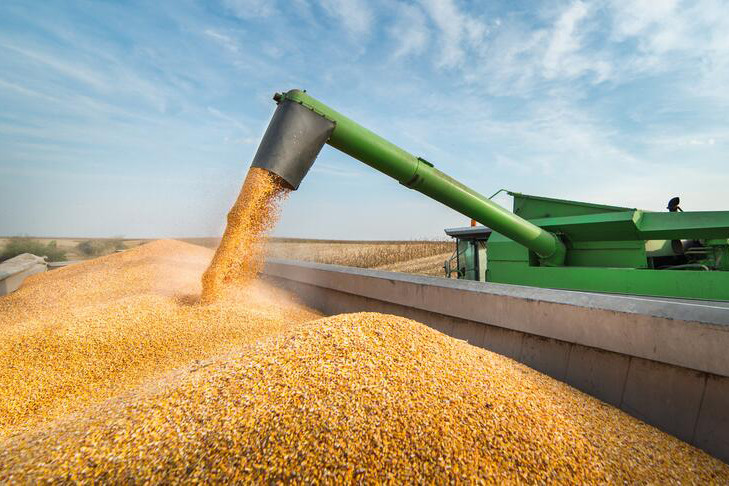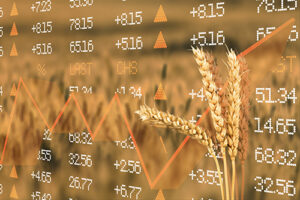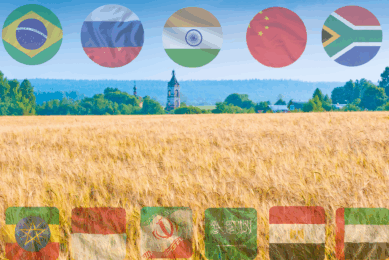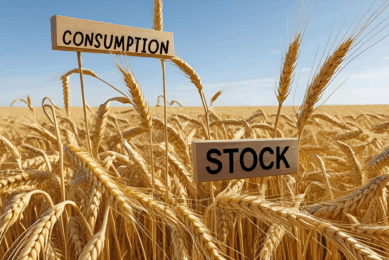Potential ripple effects of tariffs on global grain market

The US President Donald Trump has announced 50% tariffs on Brazilian exports as of 1 August. When implemented, the measure could have far-reaching effects, reverberating beyond bilateral trade and injecting new volatility into commodity pricing and logistics.
Brazil is a major player in global agriculture, as it is the largest exporter of soybeans, corn (in 2023) and meat. Although the United States is not the main destination for Brazilian grain, even marginal disruptions can ripple through tightly integrated global markets. According to Aprosoja (Brazilian Association of Soybean Producers), the measure affects the competitiveness of Brazilian production, puts pressure on transportation, and could worsen inflation. In a statement, the association says that the increase in animal protein exports, for example, is linked to soybean and corn consumption, as poultry and cattle nutrition depends on feed made from these grains.
A tariff of this magnitude on a leading grain supplier like Brazil would likely cause a significant reshuffling of trade routes,”
– Pedro Rodrigues, economist at Agrotrader Consulting, a São Paulo-based market intelligence firm.
Brazilian herds of cattle, pigs and poultry consumed around 91.1 million tons of feed in 2024. If meat exports decline, grain demand may fall, forcing exporters to pivot to Asia, Europe and the Middle East. The United States imports 10% of the Brazilian cattle production, this redirection could trigger a price war on grains. Brazilian commodities flooding alternative markets would likely depress international grain prices, hurting producers in other exporting nations, such as Argentina, Ukraine, and even the United States itself.

Short-term win, long-term risk for US farmers
While Trump has framed the tariff plan as a way to protect US farmers and manufacturing jobs, analysts warn that the global grain market – already sensitive to weather, war and geopolitics – could face a cascade of disruptions. “A tariff of this magnitude on a leading grain supplier like Brazil would likely cause a significant reshuffling of trade routes,” said Pedro Rodrigues, economist at Agrotrader Consulting, a São Paulo-based market intelligence firm. According to him, the irony is that, while US farmers may see short-term relief from Brazilian competition, they could suffer in the global arena as benchmark prices fall. “It’s like squeezing one end of the balloon – the other side bulges.” In 2023, Brazil exported over 100 million tons of soybeans and nearly 60 million tons of corn, according to USDA and Brazilian government data. “Markets hate uncertainty. And this would inject a heavy dose of it into the grain trade,” he says.
Retaliation or negotiation?
Moreover, retaliation is on the table. Brazil’s government has historically responded to protectionist measures with reciprocal tariffs, raising the stakes for US agri-business exports, such as wheat, ethanol and pork. The diplomatic angle matters, too. Brazil is a member of the BRICS bloc and a strategic supplier to China, India, and other large importers. Any US trade war with Brazil may push these countries further toward consolidating supply chains that bypass US influence. Brazilian President Luiz Inácio Lula da Silva says that if the United States does not reverse its decision, Brazil will respond with the same tariff. On the other hand, some organisations suggested that Brazil request a postponement of the tariff implementation as a way of bargaining for time to negotiate.
The debate has triggered an intense round of meetings in Brasília, led by Vice-President and Minister of Development, Industry, Trade and Services (MDIC) Geraldo Alckmin.
Already in July, Alckmin held 2 meetings with representatives from the industrial and agricultural sectors. Accompanied by ministers and secretaries, he listened to assessments from the areas affected by the US government’s decision and reaffirmed Brazil’s commitment to dialogue. Business leaders present expressed confidence in the federal government’s handling of the negotiations and advocated that any retaliatory measures should be avoided. Both the industrial and agricultural sectors are already reporting losses caused by the impact of the measure.











